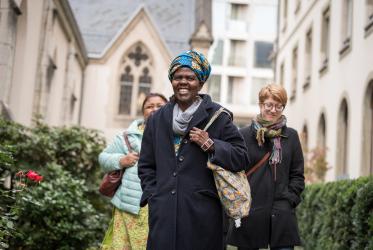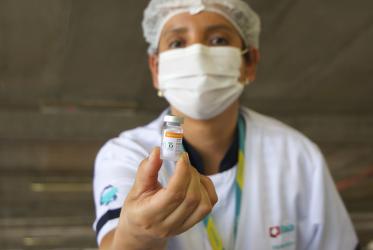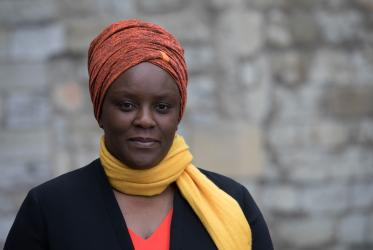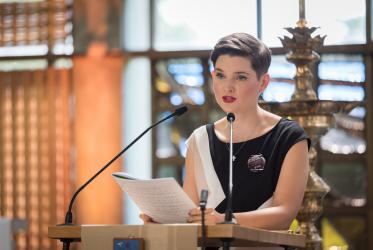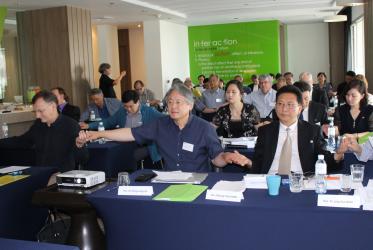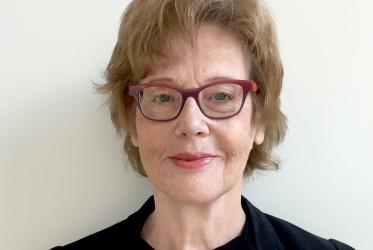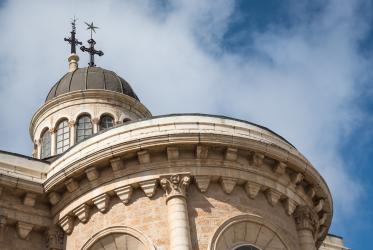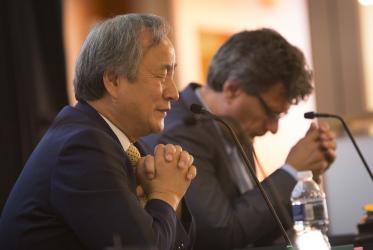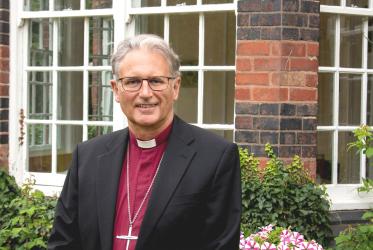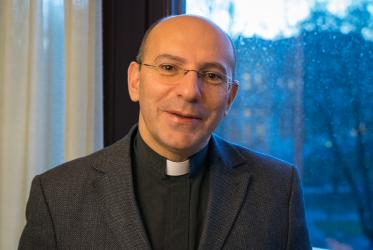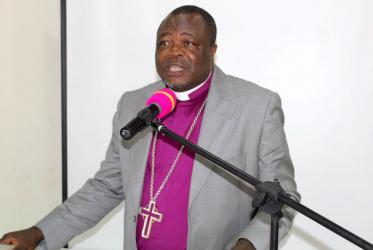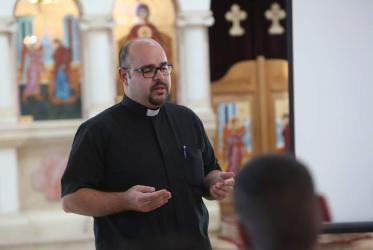Displaying 61 - 80 of 85
WCC answers your questions about vaccines
26 April 2021
Daniel Kaiser: “Try to be an authentic Christian”
15 April 2021
Peace and unity on the Korean Peninsula matters globally
25 February 2021
Bishop Hee-Soo Jung: “Prayer is a radical action”
11 December 2020
“Coventry Cathedral continues to speak a word of hope to the world”
10 December 2020
Palestinian Christian peace worker yearns for courageous leaders
10 December 2020
A hopeful, but not optimistic Palestinian ecumenist
09 December 2020
Cameroon conference on peace empowers religious leaders
30 November 2020
Fr Jamal Khader: “We need to keep hope alive” in Palestine
25 November 2020
